Anthony Albanese set to enjoy at least six years of rule – and freedom to chase ambitious policy reform
Labor’s extraordinary victory has Anthony Albanese facing a huge opportunity. The future for the Liberal Party could not be more grim.
Business
Don't miss out on the headlines from Business. Followed categories will be added to My News.
While nothing is guaranteed in politics, Anthony Albanese’s historic election victory and the wipe-out of much of the opposition all but gifts him at least six years of rule.
As it stands, Labor scored a mammoth 87 seats while the Liberals have been relegated to just 39, securing the prime minister an emphatic mandate and enviable electoral confidence.
“It’s almost impossible to imagine the Coalition being in shape to be seriously competitive at the next election,” Professor Mark Kenny, director of the Australian Studies Institute at the Australian National University, said.
“Labor is in a very strong position to consider itself in the box seat for a third term.”
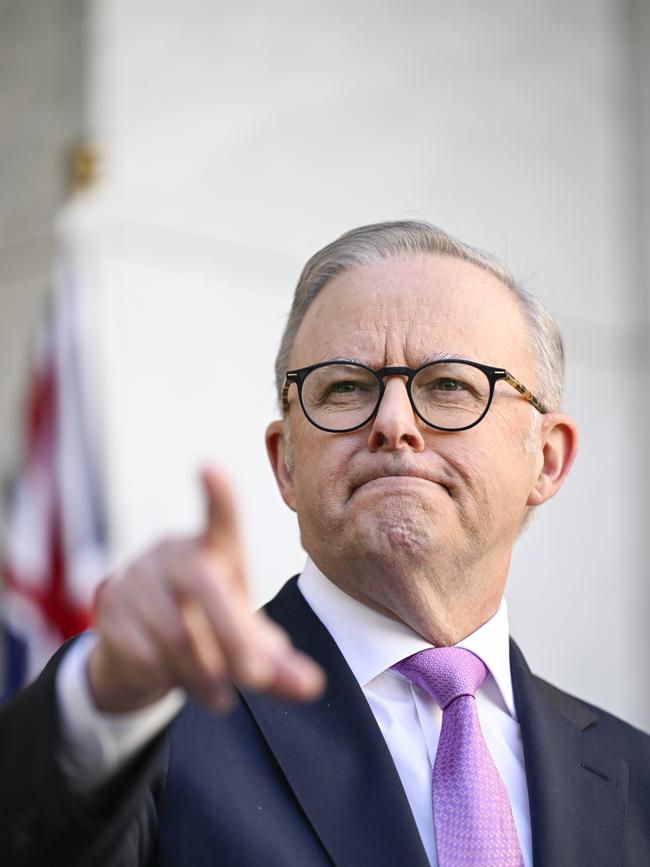
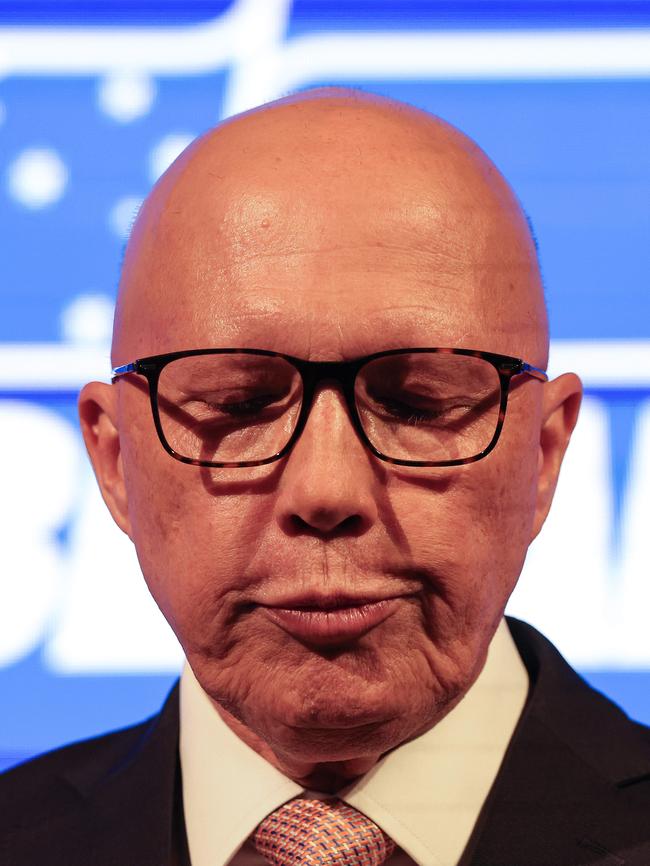
But the mammoth win might wind up being the easy part, with experts saying the challenge now for the government is not to squander the opportunity.
“Albanese bristles at the suggestion his government was overly cautious in the first term,” Professor Kenny said.
“Already he’s addressing that, saying it was an ambitious agenda, and they went further than they pledged to do in some areas.”
Mr Albanese looks “more confident than he ever has” and believes the government will seize the fact it has “more purpose about it” than in the first term, Professor Kenny said.
“He’s going to need to govern from the front foot.”
Professor Chris Wallace, from the University of Canberra’s School of Politics, Economics and Society, said it’s in the government’s best interests to make its second term “really matter”.
“Labor’s low primary, but emphatic two party-preferred vote signals Australians want it in office but expect more than tinkering around the edges,” Professor Wallace wrote in analysis for The Conversation.
“The Albanese government will be expected to come up with structural solutions that meet contemporary Australians’ real needs in this second term.”
Not having to worry quite so much about a hard-fought election in three short years potentially sets the stage for more ambitious policy reform.
“The Albanese Government has such a strong standing and confidence in not only seeing out this term, but a good chance of being in power for longer,” Aruna Sathanapally, chief executive of think tank The Grattan Institute, said.
“That creates a stronger basis for good long-term policymaking. They can do things that might not deliver results for three or four years but that’s okay.”
A changing and uncertain world
No matter who won at the weekend, the next government’s first major focus was going to be the same, Dr Sathanapally said.
“The global economic picture is more volatile and more fraught, so working out how Australia situates itself in a changing world and how we make ourselves resilient to different shocks and challenges is going to be a really important piece of the government’s job for the coming three years and probably ongoing,” she said.
“Effective diplomacy is going be critical. There’s been a lot of talk about defence, but I think the thing that people haven’t quite realised is how significant the diplomatic channels are over there over the next couple of years.”

It’s clear the government is keenly aware of how precarious things are.
“The immediate focus is on global economic uncertainty, the US and China, and what it means for us,” Treasurer Jim Chalmers said yesterday.
“What’s happening, particularly between the US and China, does cast a dark shadow over the global economy. We need to have the ability, and we will have the ability, to manage that uncertainty.”
Even if Australia manages to negotiate an exemption on US tariffs, there will be unavoidable impacts, Professor Kenny said.
“Australia is very exposed to China, and China is in a trade war with the US. Even if there aren’t direct tariffs on Australia, there’s still damage done by Washington’s war with Beijing.
“There are some big risks associated with the economic picture.”
In terms of defence, there will also be challenges associated with Australia’s reliance on the United States given the current state of the White House.
Professor Kenny said the government could look to bolster the country’s defence spending and ability to be self-reliant.
“Perhaps not entirely self-reliant, but certainly more so than now.
“I sense there’s been a shift in the Australian community’s view of America. That’s even manifested in people like [Liberal MP] Andrew Hastie, a conservative pro-alliance figure, talking about greater self-reliance.”
No more ‘band aid solutions’
One-in-eight people, or 13 per cent of the population, live in poverty, according to the Australian Council of Social Services.
More broadly, research by The Australia Institute found half of survey respondents are grappling with household financial situations that have deteriorated over the past few years.
“Australians we surveyed want action on grocery prices, the costs of utilities, the costs of medical bills, and they want wages to increase more rapidly,” Dr Lisa Heap from the Centre for Future Work said.

But Labor’s costly commitments during the campaign lacked any meaningful measures to improve living standards, AMP chief economist and head of investment strategy Shane Oliver said.
“In the end, all we got was band aid solutions and a spend-a-thon of promises leaving the budget on track for deficits for at least the next decade, unless there are more big budget revenue windfalls,” Mr Oliver said.
The cost-of-living crisis that has hammered household budgets for some time now hasn’t gone away, he added.
“Since 2020, average consumer prices are up 20 per cent but average wages are up just 15 per cent. Wages growth is now running above inflation but at the current rate real wages won’t catch up to their December 2020 level until around 2032.
“The only way to sustainably address this is to boost productivity.”
Following Labor’s historic win on Saturday night, the treasurer said improving productivity would be an immediate focus for the government.
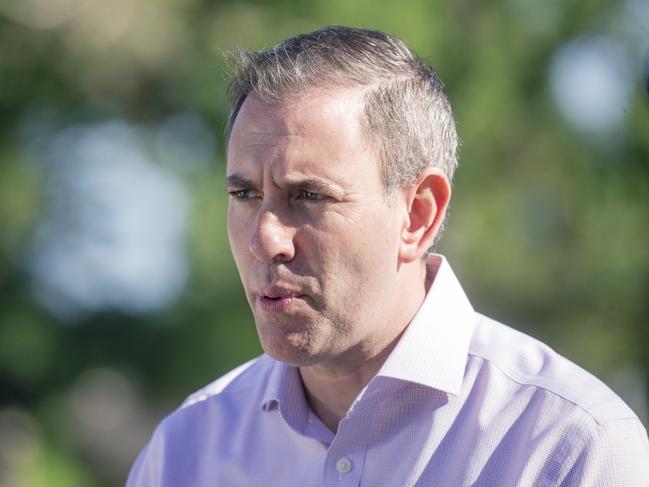
CPA Australia boss Chris Freeland welcomed Dr Chalmers’ commitment, but said serious reform is needed to “deliver a culture shift that promotes growth”.
“Amid so much global uncertainty, the government should implement a long-term strategic plan to improve Australia’s economic prospects, not just for this term but for future generations,” Mr Freeland said.
On top of reform, he said the government should immediately address the mighty task of budget repair to bring the deficit under control.
Net zero and energy policy
Over the past three years, Mr Albanese has failed to find much, if any common ground with the Coalition when it comes to energy policy, and particularly renewables.
Dr Sathanapally said a sense of long-term electoral security could embolden the government to act decisively.
“The first [domestic priority] is continuing to pivot Australia’s economy towards net zero emissions.
“The next 10 years are going be critical for us getting to net zero by 2050 and doing so in a way that realises the opportunities it presents for Australia and its economy.
“The government will need to move pretty quickly to set a target for 2035 in terms of reducing emissions and then, having set that target, will need to work to get us an energy system that we’re going to need, particularly on the east coast.”

That includes a high level of renewables, sufficient storage, and back-up generation. On the latter, that’s likely in the form of gas in the near-term, she said.
“There’s a plan for energy and that’s great, but the government has also got to set out the plan for zero that sits across all sectors of the economy.
“There are certain sectors of the economy where the thinking is still in early stages as to how to see it through to a true, functioning net zero world and exactly what the policy settings are that will enable that to happen.
“That’s going to be a big program of work over the next year really three to five years.”
Professor Kenny agreed that one area the government might show significant ambition is in decarbonising the economy.
“My guess is we’ll see some more forward-leaning economic policy reform. It’s been a significant reform challenge but one that can be more forcefully pursued now.”
Double down on housing focus
On the housing crisis front, Mike Zorbas, chief executive of the Property Council of Australia, said the government has a range of challenges to address.
“Better planning our capital and regional cities and providing the homes and industrial and commercial property assets the nation needs is a high priority for the government,” Mr Zorbas said.
“Beyond this, pro-investment settings that attract overseas money to build our future city assets must be a priority for both the federal and state governments over the next term.”
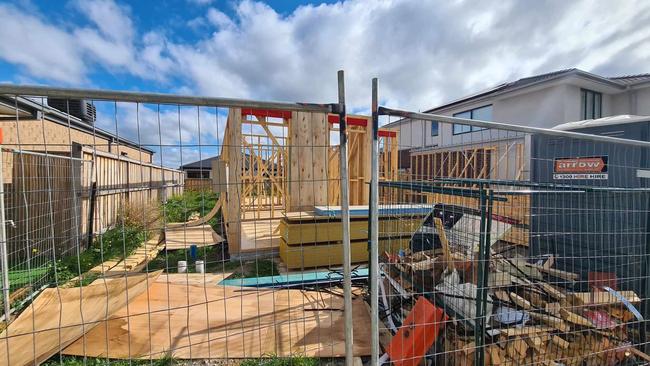
He also outlined several areas of reform the lobby group believes are crucial to addressing the housing crisis.
They include environmental approvals, industrial relations in the construction industry, the Foreign Investment Review Board, and financial sector watchdog the Australian Prudential Regulatory Authority.
“We look forward to early industry consultation on scheme design of the government’s key election commitments to make sure they continue to help industry grow the national pie,” he said.
The first order of business for the government should be housing, and any delay on serious and meaningful action will only deepen the crisis, Housing Industry Association managing director Jocelyn Martin said.
“Too often, we see housing policy used as a platform to showboat rather than solve real problems,” Mr Martin said.
“Australians want practical and meaningful reform. All sides of politics must provide bold and courageous leadership to deliver on the nations critical housing shortages and meet the National Housing Accord target of 1.2 million new homes.”
Urgently address inequality
Australia’s tax system is no longer “fit for purpose” and should be urgently overhauled by the government, Professor Helen Hodgson from Curtin University said.
“The biggest challenge that should be addressed through tax reform is the level of inequality in Australian society,” Professor Hodgson wrote in analysis for The Conversation.
“The future burden of supporting the ageing population will increasingly fall on younger Australians who generally don’t enjoy the same financial wellbeing of previous generations.”
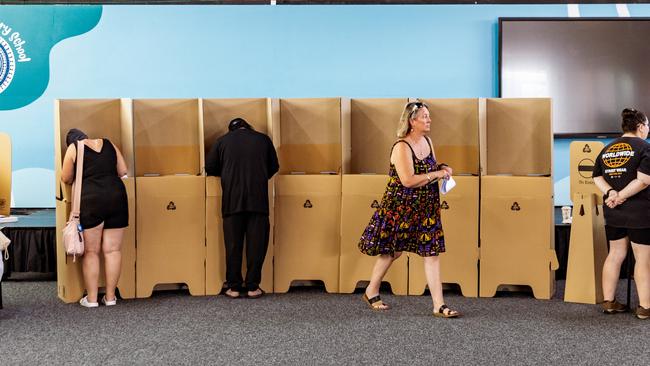
There is also rising inequality within generations, she warned.
“But there is also rising inequality within generations. Not all younger Australians can rely on inherited wealth, including the bank of mum and dad. And superannuation balances at retirement vary wildly, given they are tied to work history.
“Proper systemic tax reform would play a crucial role building a fairer society.”
A healthier health system for all
During his victory speech on Saturday night, Mr Albanese proudly fetched his Medicare card out of his suit pocket and held it up, sparking cheers from the Labor faithful gathered.
But the “worrying signs” in elements of the country’s health system will need more than symbolic gestures, Stephen Duckett from The University of Melbourne’s School of Population and Global Health warned.
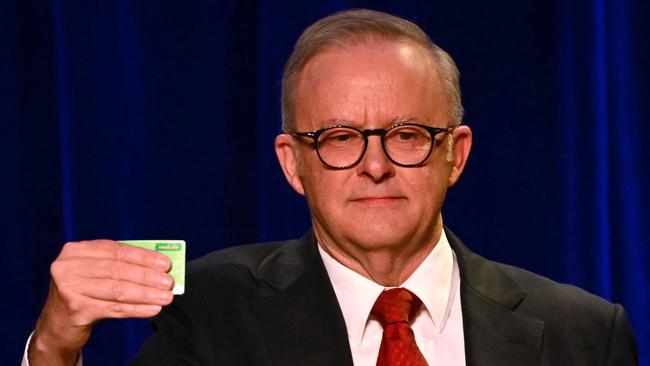
While Labor had pledged some serious cash to strengthen Medicare and the Pharmaceutical Benefits Scheme, Professor Duckett said updates and improvements are necessary.
He called for major reform on five fronts – financial barriers to care, mental health and dental care, the healthcare sector workforce, public hospitals, and managing chronic conditions.
“The hard slog of change takes years and involves much more than a few carrots thrown to voters in an election,” Professor Duckett wrote for The Conversation.
“It takes careful negotiation with stakeholders and getting the infrastructure right.”
Three years is a long time
While the government will be feeling confident now, Professor Kenny said it could be brought undone by arrogance.
Circumstances out of its control could also pose stumbling blocks.
“One of the lessons we have, even from the pre-election period here, is that external events can be quite significant and change things,” he said.
“We always have to consider the things of changing between now and the next election. Three years is a long time in politics and in world affairs at the moment.”
Originally published as Anthony Albanese set to enjoy at least six years of rule – and freedom to chase ambitious policy reform





